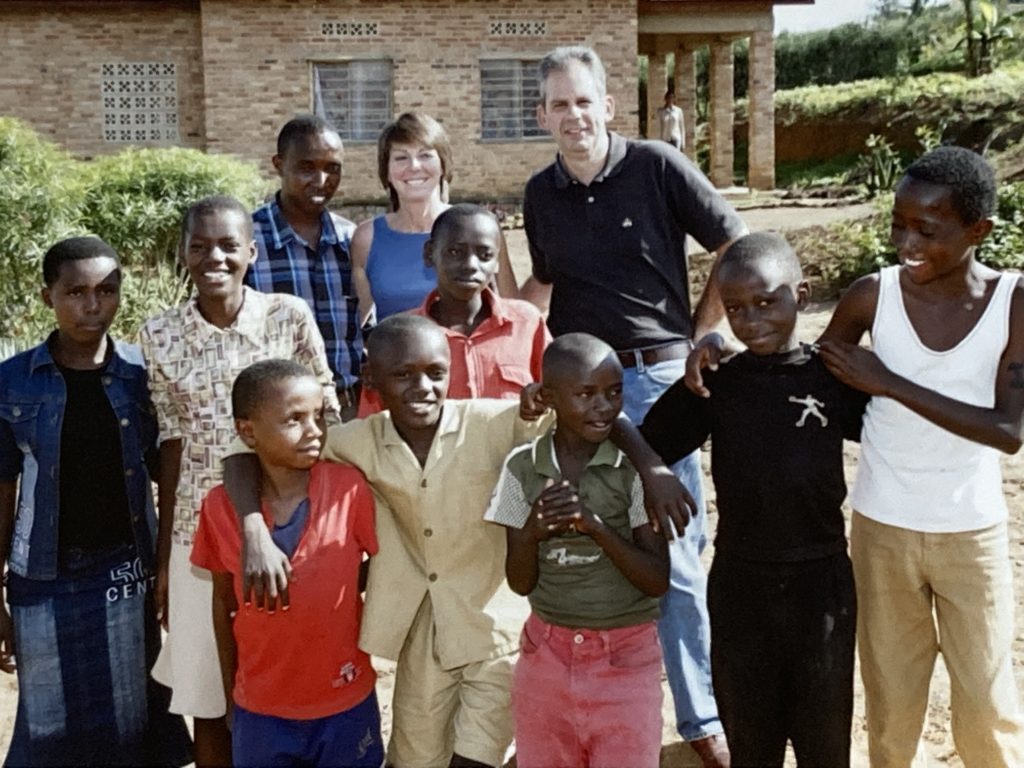My first encounter with Rwanda, back in 2004, would change my life, and it was thanks to the Survivors Fund, known as SURF. When I met the founder, Mary Kayitesi Blewitt, I knew I had found a charity with a clear-sighted, no-frills vision: helping the survivors of the 1994 Rwanda genocide rebuild their lives. There was no self-pity or gloom – just a steely determination to give a hand to people who were helping themselves, despite their unspeakable experiences during the conflict, and the personal battles they faced after the violence stopped.
SURF organised my trip to Rwanda, and on the first day, I met an unsmiling, care-worn 14-year-old called Sophia. She was taking care of six younger genocide orphans, living on the street. We agreed to fund the building of simple homes for Sophia and several other child-headed households. SURF delivered the houses ahead of schedule and for less money than estimated. When I visited Sophia a year later, she showed me her home, smiling proudly. We have been working with SURF ever since.

Now, 27 years after the genocide, the orphans like Sophia have grown up, but they cannot escape the crushing legacy of their disrupted childhoods. Just this year, another two mass graves have been uncovered, and survivors face the trauma all over again, as bodies are disinterred and identified, and then given a respectful burial.
Our Mental Health Project in Rwanda
Network for Africa works with SURF to provide much-needed psychological support to survivors, through counselling, both in groups and individually. In a society where family bonds are everything, it can be challenging when you are facing life alone. A sense of isolation adds to the practical problems they face, such as finding work and a home.
Each year, our Network for Africa/SURF national network of counsellors train hundreds of people to manage their flashbacks and trauma, and they provide a constant source of support and advice, whether it is over the phone during the pandemic, or through home visits. One happy by-product of our group counselling sessions is that a mutual support community has emerged, giving people a sense of belonging, solidarity and strength.
Commemoration of the Genocide Anniversary
This April, there can be no in-person commemoration of the genocide anniversary because Rwanda has been observing lockdown and social-distancing rather more efficiently than many better resourced nations. April is particularly hard on those who lost family in 1994, and it is also deeply upsetting for our counsellors, most of whom are themselves survivors. This year they will be dealing with the aftermath of the discovery of the two new mass graves, as well as the usual sorrowful burden. We salute them, and SURF, for their remarkable dedication.
We also salute our friends whose donations have made this work possible in the past 17 years. Thank you for being with us on this journey. Please know that your support is transforming thousands of individual lives. Please click here to donate to our continuing work.
Written by Rebecca Tinsley (Founder, Network for Africa)